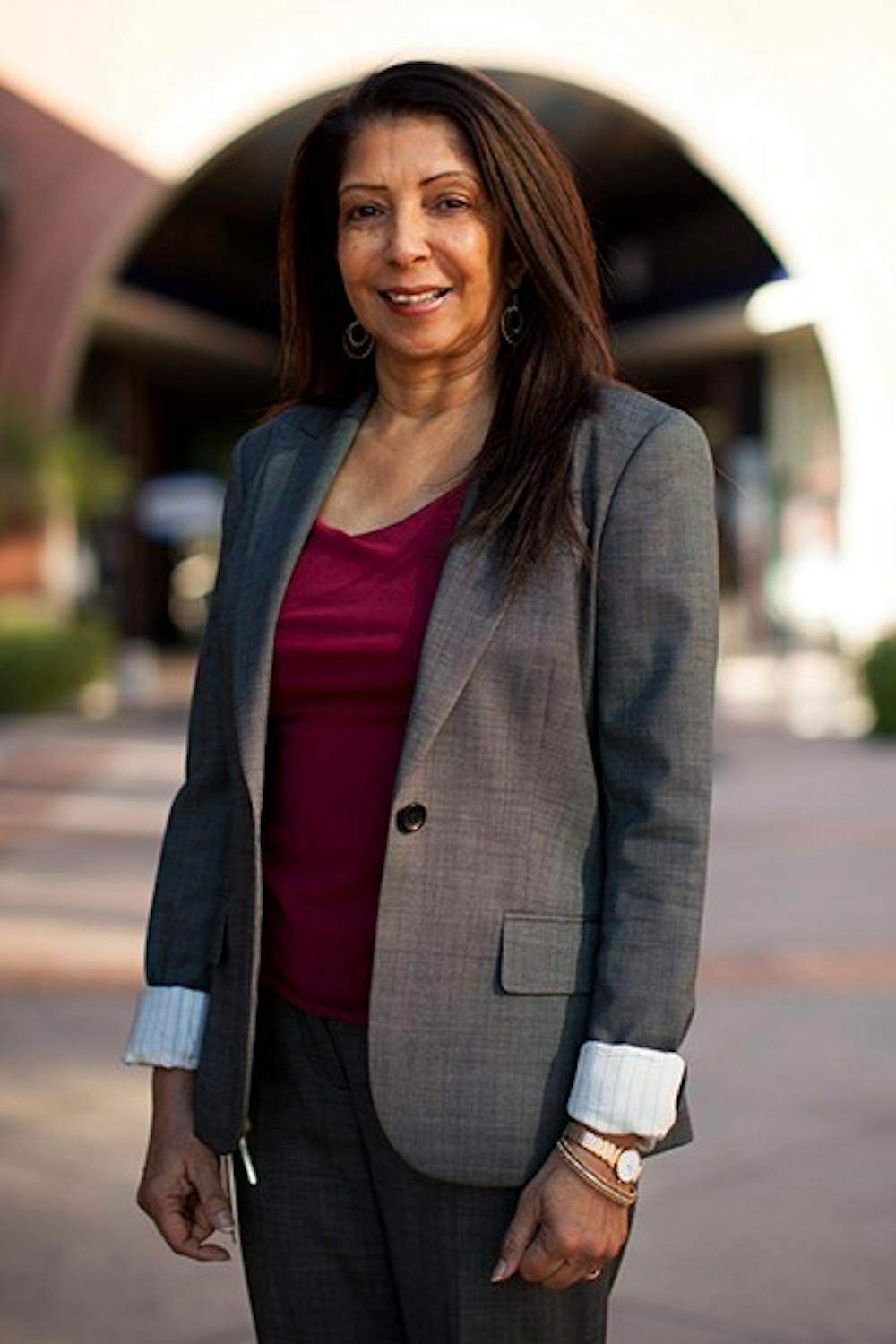 Former vice chair and a current adjunct professor for biomedical informatics at ASU Vimla Patel has been selected to receive the Hind Rattan Award for 2014. The award is being given to Patel to recognize her contributions and services to her expertise field. (Photo by Ryan Liu)
Former vice chair and a current adjunct professor for biomedical informatics at ASU Vimla Patel has been selected to receive the Hind Rattan Award for 2014. The award is being given to Patel to recognize her contributions and services to her expertise field. (Photo by Ryan Liu)
Vimla Patel, an adjunct professor at ASU and recognized cognitive scientist, will receive the Hind Rattan Award 2014 on Friday, the eve of India's Republic Day.
She will receive the award in Delhi, India, from the Non-Resident Indian Welfare Society in recognition of her long career in biomedical informatics and research in cognitive foundations.
The NRI Welfare Society aims to strengthen India's economic state by collaborating with non-resident Indians, such as Patel, who have the resources abroad to invest in India's development, according to its website.
“I’ve organized meetings in India supported through agencies in North America to bring in North American expertise into India so that they mutually can learn,” Patel said.
She said Hind Rattan recipients have accomplished much in their fields and made efforts to “bridge the economic relation” between India and North America.
Patel said she advocates for a mutually beneficial relationship between the two regions.
"I've always promoted India because of the amazing resources,” Patel said. “We can benefit from them."
Originally a biochemist, Patel changed her career path when she realized medical students were not being taught well enough in their professional development.
“I quickly recognized the limitations of what I was doing,” she said. “We needed to think of a detail study of a real world environment that people work.”
Embracing her new focus and wanting to influence the health care domain, she said she quickly realized the importance of technology and sought to understand it.
"I'm a cognitive scientist, but work in the area of health care," Patel said. "I'm interested in the scientific foundations of understanding medical errors and nature of biomedical and clinical knowledge that is required for (health care) professions."
Patel described cognition as how people think, reason and make decisions. Her studies combine cognition in relation to modern technology used by health care professionals.
Patel said she is interested in how the increased presence of technology in health care creates errors.
"I'm particularly interested in nature of errors — mistakes that get generated with and without technology," she said.
The New York Academy of Medicine, where Patel was hired as a senior research scientist and director of the Center for Cognitive Studies in Medicine and Public Health, describes her as “an accomplished researcher in the areas of biomedical informatics, cognitive psychology and their application in health and medical care settings, especially in the areas of translation of evidence into practice,” according to NYAM’s official site.
Patel sums up her efforts simply as “bridging science to practice.”
David Kaufman, an associate professor at ASU and Patel's colleague and former student, said Patel’s influence has greatly shaped his research and serves as a foundation for the field.
“Vimla was and is a pioneer in research,” Kaufman said. “I’ve learned a great deal from her over the years.”
Kaufman said the transition from student to colleague was a natural process as Patel always had high expectations for her students and expected them to practice the sciences which they studied.
Trevor Cohen, another colleague and former student of Patel’s, is an assistant professor at the School of Biomedical Informatics at the University of Texas at Houston.
“She had a big influence on the direction of my research initially,” Cohen said.
Patel, Kaufman and Cohen have recently published a book together titled "Cognitive Informatics in Health and Biomedicine: Case Studies on Critical Care, Complexity and Errors (Health Informatics)" that is available online.
The book features the collaborative efforts and studies of the three researchers in relation to various case studies.
“It’s the combination of five-year research and its medical errors and why doctors make mistake and how they recover from errors and if people can identify errors once they occur,” Cohen said.
Patel said she would like to see an impact in terms of policy as a result of her works, studies and research she’s generated throughout her career.
“Science is important,” Patel said. “But, if we can target toward some usefulness, it’s all beneficial.”
Reach the reporter at kjonessc@asu.edu or follow her on Twitter @_KennedyScott




